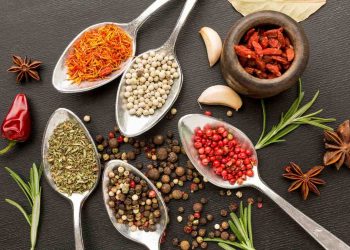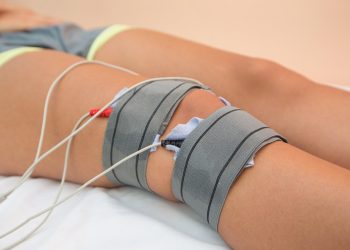Contents
5 Reasons to Snack on Peanuts for Post-Workout Repair
Picture this: you’ve just crushed a workout, heart racing, endorphins flowing, and all you can think about is that well-deserved post-exercise snack. What’s your go-to? If you haven’t considered peanuts, you might be missing out on a powerhouse of benefits. While they may seem like a simple snack, peanuts are packed with nutrients that can help with muscle repair and recovery. Let’s dive into five compelling reasons why snacking on peanuts post-workout is a smart choice.
1. Rich in Protein for Muscle Recovery
First off, let’s talk protein. After a workout, your muscles need a good amount of protein to kickstart the repair process. Peanuts are a fantastic source, offering about 7 grams of protein per ounce (roughly a small handful). This protein is vital for muscle recovery, helping to repair the tiny tears that occur during exercise.
But it’s not just about the quantity; it’s also about the quality. Peanuts contain all nine essential amino acids, which your body can’t produce on its own. This makes them a complete protein source, particularly beneficial for those who might be following a plant-based diet.
Caveat: While peanuts are great, they shouldn’t be your only protein source. Diversifying your protein intake with other sources like legumes, dairy, or lean meats can provide a broader range of nutrients.
2. Healthy Fats for Sustained Energy
Let’s be real: after an intense workout, you need more than just protein. Enter healthy fats. Peanuts are rich in monounsaturated fats, which can help provide long-lasting energy. These fats are not only good for your heart but also play a crucial role in hormone production and the absorption of fat-soluble vitamins like A, D, E, and K.
A post-workout snack that includes healthy fats can help stabilize blood sugar levels, preventing that dreaded sugar crash that can leave you feeling sluggish. Pairing peanuts with a piece of fruit can give you a perfect balance of protein, healthy fats, and carbohydrates.
Pro Tip: Try making a peanut butter banana smoothie. Just blend a banana with a tablespoon of peanut butter and some almond milk for a delicious, energizing post-workout treat!
3. Packed with Antioxidants
Did you know that peanuts are a great source of antioxidants? They contain resveratrol, a powerful antioxidant that can help reduce inflammation and support recovery. After an intense workout, your body goes through oxidative stress, and antioxidants play a crucial role in combating that stress and reducing muscle soreness.
Research has shown that incorporating antioxidant-rich foods into your diet can speed up recovery time. A study published in the Journal of the International Society of Sports Nutrition found that athletes who consumed a diet rich in antioxidants experienced less muscle soreness and faster recovery times.
Consider This: While antioxidants are beneficial, moderation is key. Too much of a good thing can sometimes lead to imbalances, so ensure you’re getting a variety of nutrients in your diet.
4. Nutrient-Dense Snack
When you’re looking for a post-workout snack, you want something nutrient-dense, and peanuts fit the bill perfectly. They’re not just about protein and fats; peanuts are also loaded with vitamins and minerals like magnesium, potassium, and vitamin E.
- Magnesium plays a vital role in muscle function and recovery. It helps with muscle contraction and relaxation, making it essential for any athlete.
- Potassium is crucial for maintaining fluid balance and muscle function, especially after sweating it out during your workout.
- Vitamin E is an antioxidant that helps protect your cells from damage.
With just a small handful of peanuts, you can get a significant boost in these essential nutrients, making them a smart choice for post-exercise recovery.
But Beware: Peanuts are calorie-dense, so portion control is essential. It’s easy to munch on a handful and then some, which can lead to excess calorie intake if you’re not careful.
5. Versatile and Convenient
Finally, one of the best things about peanuts is their versatility. Whether you prefer them raw, roasted, or as peanut butter, they can fit into virtually any post-workout meal or snack. You can toss them into a smoothie, sprinkle them on a salad, or simply enjoy a handful on their own.
Plus, they’re incredibly convenient. They have a long shelf life, making them a great option to keep on hand for those post-workout cravings. No fancy prep required—just grab a bag and go!
Quick Ideas:
- Mix peanuts with dried fruit for a homemade trail mix.
- Spread peanut butter on whole-grain toast for a satiating snack.
- Add peanuts to yogurt or oatmeal for an extra crunch.
FAQs
1. Can I eat peanuts if I have a nut allergy?
No, if you have a nut allergy, you should avoid peanuts, as they can trigger allergic reactions. Always consult with a healthcare provider for personalized advice.
2. How many peanuts should I eat after a workout?
A handful (about 1 ounce) is a good portion size. It provides enough nutrients without going overboard on calories.
3. Are there any downsides to eating peanuts?
While peanuts are nutritious, they are calorie-dense. Overeating can lead to unwanted weight gain. Moderation is key!
4. Can I replace peanuts with other nuts?
Absolutely! Other nuts like almonds or walnuts also offer similar benefits. Just keep in mind their unique nutrient profiles.
Conclusion
Incorporating peanuts into your post-workout routine can be a game-changer. They offer a perfect blend of protein, healthy fats, antioxidants, and essential nutrients—all in a convenient, tasty package. So next time you finish a workout, don’t overlook the humble peanut. It might just be the snack you need to enhance your recovery and keep those energy levels up.
Remember, while peanuts are great, balance and variety in your diet are crucial for overall health. Keep exploring different foods and find what works best for you.
This article is for educational purposes only and is not a substitute for professional medical advice. Always consult a qualified healthcare provider before making changes to your health routine.
References
-
Jagim, A. R., et al. (2018). Antioxidant supplementation and its effects on muscle recovery: A review. Journal of the International Society of Sports Nutrition. https://jissn.biomedcentral.com/articles/10.1186/s12970-018-0247-2
-
Hu, F. B., & Willett, W. C. (2011). The Nutrition Source: Fats and Cholesterol. Harvard T.H. Chan School of Public Health. https://www.hsph.harvard.edu/nutritionsource/fats-and-cholesterol/
-
Kelsey, K. S. (2020). Peanuts and Health. Mayo Clinic. https://www.mayoclinic.org/healthy-lifestyle/nutrition-and-healthy-eating/in-depth/peanuts/art-20045318
Get Your FREE Natural Health Guide!
Subscribe now and receive our exclusive ebook packed with natural health tips, practical wellness advice, and easy lifestyle changes — delivered straight to your inbox.















